
Andrew Green
Professor and Metcalf Chair in Environmental Law, University of Toronto
Andrew Green is Professor and Metcalf Chair in Environmental Law at the University of Toronto Faculty of Law. He researches in the areas of climate change law, administrative law and judicial decision-making (including empirical analysis of how judges make decisions). His most recent is book is Picking up the Slack: Law, Institutions and Canadian Climate Policy (University of Toronto Press, 2022) which examines how Canadian law and legal institutions have fostered weak action on climate change but provide a basis for change.
Less ![]()
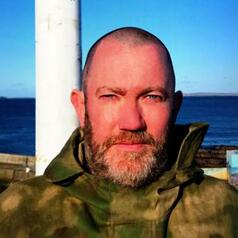
Andrew Groves
Professor of Fashion Design, University of Westminster
Andrew Groves is Professor of Fashion Design at the University of Westminster, and the director of the Westminster Menswear Archive, which he founded in 2016. It houses over 2,000 examples of some of the most significant menswear garments from the last 250 years, including designer fashion, streetwear, everyday dress, sportswear, workwear, and uniforms.
Recognising the relative lack of menswear in other fashion and museum collections, the WMA was established to create a significant teaching collection centred on men’s garments that could be used for object-based research by both design students and the fashion industry. A further key aim was to facilitate and publicise the knowledge and understanding of menswear as a distinct design discipline through public engagement and exhibitions.
The collection holds over 2500 menswear garments from 1780 to the present day, with a primary focus on post-1940s British men's dress - clothing produced, designed, worn, or sold in Britain. It includes designer fashion, streetwear, everyday dress, sportswear, workwear, and uniforms. It receives over 800 visitors annually and is utilised for research purposes by students, academics, and designers in industry. It is inspired by Italian garment archives, specifically the Massimo Osti archive which was non-hierarchal, housing military, utilitarian, industrial, and fashion garments together.
In 2019, Groves co-curated Invisible Men: An Anthology from the Westminster Menswear Archive, the United Kingdom’s largest menswear exhibition to date. It investigated the invisibility of menswear as a result of its inherent design language, which focuses on iterations of archetypal garments intended for specific functional, technical, or military use. It demonstrated how designers have disrupted this by making small but significant modifications to produce results that both replicate and subvert their source material.
In 2021, Groves co-curated the exhibition Undercover – From Necessity to Luxury: The Evolution of Face Coverings During COVID-19. It explored how face coverings evolved over the period of a year, from being a functional PPE object in short supply to becoming an everyday object worn by millions. The WMA collected over a hundred examples of face coverings between April 2020 and April 2021, and the exhibition displayed 52 of these face coverings arranged chronologically to examine how the fashion industry rapidly adapted production, manufacturing, and online marketing to meet shifting consumer demands.
He is currently the principal investigator of the AHRC-funded network project, Locating the absent shadow: exploring connections and encounters in British menswear. This international network is designed to investigate the cultural and industrial connections between London, Liverpool, Manchester, and Milan, Italy, and how they have influenced the production, display, and consumption of British menswear.
Less ![]()
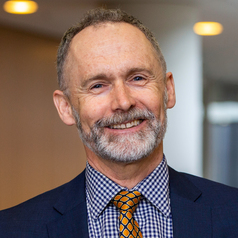
Andrew Grulich
Professor and Program Head, HIV Epidemiology and Prevention Program, Kirby Institute, UNSW Sydney
Professor Andrew Grulich is a medical epidemiologist and Public Health Physician. He is head of the HIV Epidemiology and Prevention Program at the Kirby Institute, UNSW Australia. He is a past president of the Australasian Society for HIV Medicine and is a Governing Council member of the International AIDS Society. His research group investigates the transmission and prevention of HIV and sexually transmitted infections in homosexual men, with a focus on the prevention of human papillomavirus-related disease.
Less ![]()

Andrew Guthrie Ferguson
Professor of Law, American University
Professor Ferguson teaches and writes in the area of criminal procedure, evidence, and new technologies. He is a national expert on juries, predictive policing, big data surveillance, and the Fourth Amendment. His articles have appeared in the University of Pennsylvania Law Review, the California Law Review, the Cornell Law Review, the UCLA Law Review, the Minnesota Law Review, the Northwestern Law Review, the Vanderbilt Law Review, the University of Southern California Law Review, and the Notre Dame Law Review among others.
Professor Ferguson’s book The Rise of Big Data Policing: Surveillance, Race, and the Future of Law Enforcement (NYU Press) examines how surveillance technology and predictive analytics shapes modern policing. His first book Why Jury Duty Matters: A Citizen’s Guide to Constitutional Action (NYU Press) is the first book written for jurors on jury duty. (Book Review). For D.C. residents he also stars in the “Welcome To Jury Duty Video” in D.C. Superior Court seen by more than 30,000 citizens annually.
Less ![]()
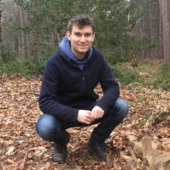
Andrew Hacket-Pain
Senior Lecturer, School of Environmental Sciences, University of Liverpool
Less ![]()


Andrew Heffernan
Climate Associate at the Information Integrity Lab and Adjunct Professor in Political Studies, L’Université d’Ottawa/University of Ottawa
Less ![]()
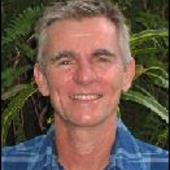
Andrew Hemming
Associate Professor of Law, School of Law and Justice, University of Southern Queensland
Less ![]()
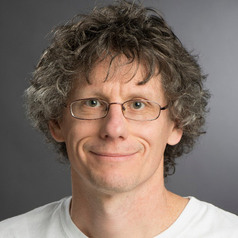
Andrew Herbert
Professor of Psychology, Visual Perception, Rochester Institute of Technology
Andrew Herbert’s research interests lie in visual perception and related fields. He has published on different visual illusions, spent a lot of time trying to understand the perception of bilateral symmetry, and is interested in the timing and cortical loci of different perceptual and cognitive processes.
Less ![]()
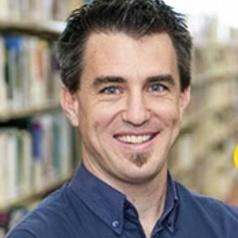
Andrew Hickey
Professor of Communications and Cultural Studies, University of Southern Queensland
Andrew Hickey is Professor of Communications and Cultural Studies at the University of Southern Queensland, and Chair of the University of Southern Queensland Human Research Ethics Committee. Andrew is an ethnographer and has undertaken large-scale projects exploring community, the public pedagogies of place in urban developments, and the enhancement of social harmony with partners including the Canadian Government, Australian Government Department of Education and Training, Education Queensland, state and local governments, and a number of community organizations. His books include The Pedagogies of Cultural Studies (Routledge 2016) and Cities of Signs: Learning the Logic of Urban Spaces (Peter Lang 2012). Andrew can be contacted via the School of Humanities and Communication, USQ. Email: andrew.hickey@usq,edu.au
Less ![]()
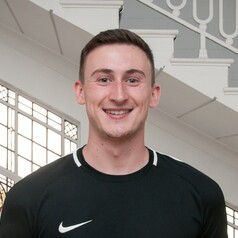
Andrew Higham
Doctoral Researcher, Sheffield Hallam University
I am a Sport Psychology PhD student and graduate teaching associate at Sheffield Hallam University within the Sport and Physical Activity Research Centre (SPARC). My current research interests include well-being, welfare, and morality within professional sports contexts, with a particular focus on male football.
My present research aims to utilise novel qualitative methods to illuminate how professional football coaches experience and make sense of well-being. These methods include interpretative phenomenological analysis, video docuseries, and photo-elicitation. My PhD has a specific focus on how socio-contextual and temporal interactions shape a person's well-being.
I also have an MSc in Sport and Exercise Psychology, where I explored morality within professional football contexts.
Before starting my full-time PhD scholarship, I was a Higher Education Teaching Associate who taught across many sports science and coaching degree programmes.
Less ![]()
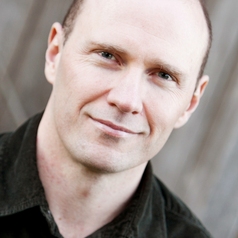
Andrew Hughes
Lecturer, Research School of Management, Australian National University
Andrew Hughes is a lecturer in marketing at the Australian National University in Canberra. Prior to his academic career, Andrew worked in marketing management and strategy for some of Australia’s biggest organisations in the financial, industrial and services marketing sectors. His main areas of research include television advertising, branding, sports marketing, political and non-profit marketing, and marketing strategy. He has published numerous papers in political marketing, advertising and branding, and presented his work at conferences in Australia and overseas.
Less ![]()

Andrew J. Hoffman
Andy Hoffman is the Holcim (US) Professor of Sustainable Enterprise at the University of Michigan, with joint appointments in the Ross School of Business and the School of Natural Resources & Environment. Andy also serves as the Education Director at the Graham Sustainability Institute.
Professor Hoffman has written extensively about corporate responses to climate change; how the interconnected networks of NGOs and corporations influence change processes; and the underlying cultural values that are engaged when these barriers are overcome. His research uses a sociological perspective to understand the cultural and institutional aspects of environmental issues for organizations. In particular, he focuses on the processes by which environmental issues both emerge and evolve as social, political and managerial issues.
He has published twelve books, which have been translated into five languages. His work has been covered in numerous media outlets, including the New York Times, Scientific American, Time, the Wall Street Journal and National Public Radio. He has served on research committees for the National Academies of Science, the Johnson Foundation, the Climate Group, the China Council for International Cooperation on Environment and Development and the Environmental Defense Fund. Prior to academics, Andy worked for the US Environmental Protection Agency (Region 1), Metcalf & Eddy Environmental Consultants, T&T Construction & Design and the Amoco Corporation.
Andy has worked with organizations in both the public and private sectors. This includes projects with: Accenture LLP, Dow Chemical Co., Environmental Defense Fund, Exxon-Mobil Corp., Holcim (US) Inc., International Finance Corp., Novartis, The Conference Board, The Nature Conservancy, The Southern Company, World Business Council on Sustainable Development, and Yellowstone National Park.
Less ![]()
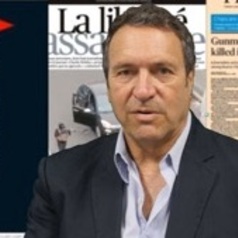
Andrew Jakubowicz
Professor of Sociology, University of Technology Sydney
Andrew Jakubowicz is Professor of Sociology at the University of Technology Sydney. He has an Honours degree in Government from Sydney University and a PhD from UNSW.
Since the early 1970s he has been involved in action research and race relations, and has been centrally involved in the development of materialist theories of cultural diversity. He has taught at universities in the USA, Europe and Asia, and was the foundation director of the Centre for Multicultural Studies at the University of Wollongong. He has published widely on ethnic diversity issues, disability studies and media studies. More recently he has been co-director of the Cosmopolitan Civil Societies Research Key Strength at UTS (2008-2015).
In 1994 he led the research team that produced the book, Racism Ethnicity and the Media (Allen and Unwin), and has has been involved in multimedia documentaries such as Making Multicultural Australia (1999-2004) and The Menorah of Fang Bang Lu (2001-2002). He was historical adviser to the exhibitions on the Jewish communities of Shanghai, at the Sydney Jewish Museum (2001-2002), the National Maritime Museum (2001-2003) and the national travelling exhibition, Crossroads: Shanghai and the Jews of China (2002-2003).
He was foundation chair of the Disability Studies and Research Institute. He chaired the Institute for Cultural Diversity, a national NGO (http://culturaldiversity.net.au) from 2009 to 2012.
He was historical advisor on the SBS series, "Immigration Nation" (2011), and is series advisor on "Once Upon a Time in...", a three season project for Northern Pictures and SBS, of which "Cabramatta" (2012) and "Punchbowl" (2014) have been released. He developed the concept for "The Great Australian Race Riot", a three episode series for SBS made by Essential Media broadcast in 2015.
Graduate research supervision areas include new media and social change, racism and ethnicity, public policy and marginalised minorities. He is current lead Chief Investigator on the ARC Linkage project "Cyber Racism and Community Resilience" with colleagues at Sydney, Western Sydney, Deakin and Monash universities, and in collaboration with the Australian Human Rights commission, VicHealth and the Federation of Ethnic Community Councils of Australia.
"Making Multicultural Australia in the 21st Century", an educational website developed jointly with the Office of the Board of Studies NSW, won the 2005 Best Secondary Educational website category of the annual Excellence in Educational Publishing Awards.
Less ![]()
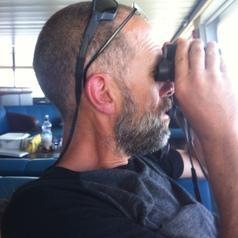
Andrew Jarvis
Lecturer, Lancaster Environment Centre, Lancaster University
Andrew has been teaching at Lancaster University for over twenty years while running a microfarm and raising five children. His research draws on his background in systems dynamics, which he has applied to a range of fields including systems biology, ecology, metreology, climate and economics. His current interests are around radical simplification from emergence in complex systems.
Less ![]()
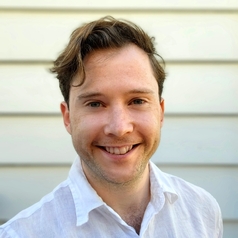
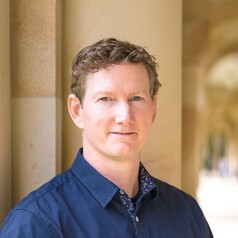
Andrew Kennedy
Casual Academic Performance Psychology and Sports Coaching, The University of Queensland
I am a performance psychologist and sports coaching researcher with an interest in understanding how people function to optimise outcomes in dynamic sporting environments. My areas of interest include predictive processing, cognitive functioning, sports coaching expertise, and belief effects.
Less ![]()
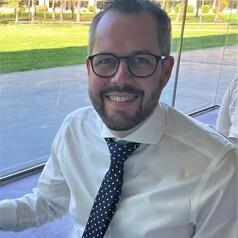
Andrew Kenrick
Visiting Research Fellow, School of Literature, Drama and Creative Writing, University of East Anglia
Andrew Kenrick (he/him) holds a PhD in Life Writing from the University of East Anglia, where he is a visiting research fellow. He specialises in writing ancient biography, and is currently writing about the lives of queer Romans. He lives in Norwich with his partner.
Key Research Interests
1st Century BC/AD Rome; ancient food and dining; perceptions/portrayals of race, ethnicity, gender and sexual orientation in the ancient world; biography.
Academic Background
BA Hons in Ancient History & Archaeology, University of Birmingham (2002)
MA in Biography and Creative Non-fiction, University of East Anglia (2017)
PhD in Life Writing, University of East Anglia (2023, thesis title - African Kings, Roman Rule: The Life of Juba II and Cleopatra Selene of Mauretania)
Career
Prior to returning to academia, Andrew worked as an editor for over 10 years. He holds a PhD in Life Writing, his thesis developed a new methodology for writing biographies of ancient characters, using Juba II and Cleopatra Selene of Mauretania as his test case. His area of research interest is object-based biography and life writing, as well as non-fiction publishing. He is the founder and editor of Hinterland, a quarterly print magazine of creative non-fiction.
Teaching Interests
Publishing; non-fiction; archives; archival research; biography; archaeology.
Less ![]()
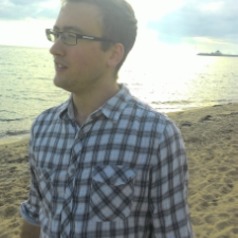
Andrew King
Climate Extremes Research Fellow, University of Melbourne
I'm a Research Fellow at the University of Melbourne interested in climate extremes and their attribution to human-induced climate change.
Less ![]()

Andrew Kingsford-Smith
PhD Candidate in Educational Psychology, UNSW Sydney
Andrew Kingsford-Smith is a current Scientia PhD candidate and Casual Academic in the School of Education, UNSW. He has teaching experience at several universities and high schools, and is passionate about bringing evidence-based practices into schools. His research interests focus on student and teacher motivation, engagement, and wellbeing using quantitative analyses. Andrew’s research has been published in both academic journals and professional media outlets. Andrew has worked on several research projects at UNSW, including the “Optimal Music Performance”, “Rural & Regional Education” and “Graduate Ready Schools” projects.
Less ![]()

Andrew Knight
Adjunct Professor (Animal Welfare), Murdoch University and Griffith University, Visiting Lecturer, University of Winchester
Less ![]()
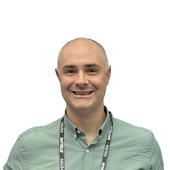
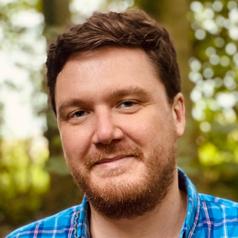
Andrew Lacey
Senior Research Associate on the Davy Notebooks Project, Lancaster University
I am Senior Research Associate on the Davy Notebooks Project (Arts and Humanities Research Council funded).
I joined the Department in 2014 as Senior Research Associate (Modern Humanities Research Association funded) on the Davy Letters Project (http://www.davy-letters.org.uk). Between 2015-18, I continued to work on the Davy Letters Project in posts funded by the Arts and Humanities Research Council, the British Academy, and the Society for the History of Alchemy and Chemistry.
I studied at Durham University (2004-07) and Newcastle University (2007-08; 2009-12). After completing my PhD (Arts and Humanities Research Council funded) on the philosophy of death in the poetry of William Wordsworth and Percy Bysshe Shelley, I worked as Research Assistant on two projects in the School of English Literature, Language and Linguistics at Newcastle University: The Letters of William Godwin (Oxford University Press), gen. ed. Pamela Clemit, volume III, ed. by M. O. Grenby (forthcoming), and The Poems of Shelley (Longman Annotated English Poets), volume IV, ed. by Michael Rossington, Jack Donovan, and Kelvin Everest (London: Routledge, 2013).
I am Co-Editor of Nineteenth-Century Contexts.
I currently serve as the Postdoctoral Representative on the Departmental Research Committee. I also serve on the Project Board of Prosper (project led by the University of Liverpool; project partners the University of Manchester and Lancaster University; funded by the UKRI Research England Development Fund).
My current research interests include Romantic-period literature, 1798-1822 (especially poetry, and especially the writings of Shelley and Wordsworth); philosophy (especially of death) in Romantic-period literature; the writings of Humphry Davy (especially his letters), John Davy, and the relationships between literature and science in the early nineteenth century; and the theory and practice of scholarly editing. I have published articles on Crabbe, Davy, Keats, Shelley, and Wordsworth. I am currently completing my first monograph, on Shelley and death.
Less ![]()

Andrew Lenton
Director Permanent Carbon Locking Future Science Platform (CarbonLock), CSIRO Environment, CSIRO
Andrew Lenton is the Director of CSIRO's Permanent Carbon Locking Future Science Platform (CarbonLock). CarbonLock focuses on novel Carbon Dioxide Removal that is scalable, fast-acting, permanent and responsible.
His research interests focus on Carbon Dioxide Removal and its role in reaching net zero and transitioning to a net-negative world. Dr Lenton is engaged in national and international Carbon Dioxide Removal research efforts, co-leading the recent Climate Change Authority Reports on Australia’s Carbon Sequestration Potential. Amongst other roles, Andrew continues to lead the Carbon Dioxide Removal Model Intercomparison Project (CDRMIP), is a principal investigator in several national and international projects, and serves on several national and international advisory groups.
He brings over 20 years of experience modelling the global carbon cycle and climate, focusing on understanding past, present and future changes in the earth's system and exploring solutions beyond mitigation to address climate change. He has been involved in negative emissions and geoengineering research for over a decade. Andrew has held a number of positions, from Research Director to leading CSIRO's Earth System Science Portfolio. He has over 100 peer-reviewed publications and reports, including the 5th and 6th IPCC Assessment Reports.
Less ![]()

Andrew Linn
Pro-Vice-Chancellor and Dean of Social Sciences and Humanities, University of Westminster
I joined the University of Westminster in February 2016 as Pro Vice-Chancellor and Dean of Social Sciences and Humanities. I am also Professor of Language, History and Society.
My first degree (at Emmanuel College, Cambridge where I was organ scholar) was in English, followed by a Master's degree in General Linguistics and a PhD in the History of Linguistics.
From 2003 I was Professor of the History of Linguistics at the University of Sheffield. In my time at Sheffield I was successively Head of English Language and Linguistics and Director of Research in the Arts and Humanities. I spent the academic year 2007-2008 working at the University of Bergen on a Leverhulme Fellowship, and in 2012 I was visiting professor at the University of Paris 7-Diderot.
I am a Fellow of the Norwegian Academy of Science and Letters (Det Norske Videnskaps-Akademi) and of the Agder Vitenskapsakademi, a strategic reviewer for the Arts and Humanities Research Council and President of the Henry Sweet Society for the History of Linguistic Ideas.
My current research involves projects and publications on the changing status of English in Europe, language policy-making, the experiences of Nordic emigrants, and the history of applied linguistics.
Less ![]()
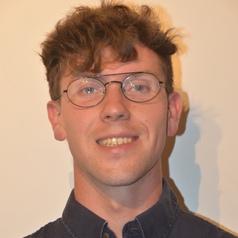
Andrew Lonsdale
Research Assistant, London School of Economics and Political Science
Andrew Lonsdale is a Research Assistant at the International Inequalities Institute at the LSE, working with Dr Arun Advani and Dr Andy Summers. His work focuses on the revenue and distributional impacts of potential reforms to capital gains tax.
Andrew holds masters degrees in Economics from the Paris School of Economics and in Public Policy and Administration from the LSE, and completed his undergraduate studies at McMaster University. He previously worked as a tax intern at the OECD's Centre for Tax Policy and Administration and as a research intern at the Center for Research in Economics and Statistics.
Less ![]()
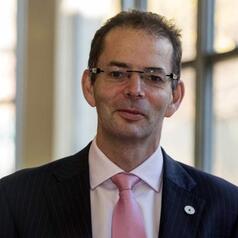
Andrew Lotery
Professor of Ophthalmology, University of Southampton
Andrew Lotery is an ophthalmologist with major research interests in age-related macular degeneration, central serous chorio-retinopathy and inherited retinal diseases. He has been awarded the Nettleship Award for best research published by a UK ophthalmologist in the past 3 years by the Royal College of Ophthalmologists and was listed by the Times as one of the United Kingdom’s top 100 doctors. He has been recognised for his research by the University Hospital Southampton Innovation and Researcher of the Year awards and a Macular Society award. He was editor in chief of the scientific journal, Eye for 10 years and is past Chair of the Scientific Committee of the Royal College of Ophthalmologists. He has served two times as an NIHR Senior Investigator. His research has been funded by the Wellcome Trust, NIHR and eye research charities. He has served as Chair of several national eye research advisory boards for Sight Research UK and Retina UK and sat on research committees for the Medical Research Council and Wellcome Trust.
Less ![]()
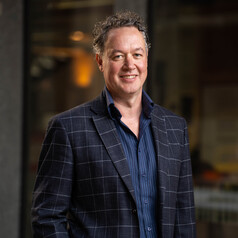
Andrew Lowe
Director, Environment Institute, University of Adelaide
Professor Andrew Lowe is a dynamic and innovative research leader with executive experience in university, government, start-up industry and community sectors. He is particularly skilled at identifying and realizing research opportunities and partnerships combining collaborative research expertise with external stakeholders.
Since 2015, Andrew has undertaken roles specialising in partnership building to deliver research outcomes. He is currently Director of the Environment Institute, one of the University of Adelaide’s six research Institutes with over 100 members. During his tenure he has led a culture-focused rebuilding of the institute to prioritise activity around key staff and strengths. Other roles include, Director of Agrifood and Wine (2017-2020), an institution-wide role that brought together expertise in research and teaching across Faculties, Institutes and Schools to coordinate and provide engagement with the food industry and government sectors across Australia and internationally. During this time Andrew also served as Science Director for the $121M Fight Food Waste Cooperative Research Centre. He was the research lead for the bid and responsible for developing the research investment portfolio across 60 research and industry partners. He also served as Deputy Dean – Partnerships and Collaboration in the Faculty of Science (2015-2016), coordinating early and mid-career training and mentoring programs and building partnerships with external stakeholders. Since 2012, Andrew has held significant research infrastructure management positions. He led and negotiated the South Australian node of the NCRIS funded Terrestrial Ecosystem Research Network, served as Science Director and Board member. He is currently Director, NCRIS strategy, coordinating across the University’s significant NCRIS portfolio.
Andrew is a successful academic leader, and was made full professor in 2006, nine years after gaining his PhD in Plant Evolutionary Biology (1997) from the University of St Andrews, UK. He has helped secure over $250M of funding and has published over 250 scientific papers and books (including in Science, Nature PNAS), which have attracted >23,000 citations and an h index of 75. He has collaborated with over 300 researchers, from 100 institutes in 30 countries, and has directly supervised over 120 technical and postdoctoral staff, and graduate students (PhD, MSc Honours).
Experienced in commercializing research, Andrew is Chief Scientific Officer of Double Helix Tracking Technologies, a Bioknowledge start-up headquartered in Singapore that uses DNA tools to identify and help eliminate illegally logged timber from global supply chains. He has served on a broad range of international and national boards and committees, including: Lead author of the Intergovernmental Platform for Biodiversity and Ecosystem Services (IPBES) assessment on Land Degradation and Restoration; the United Nation’s Office of Drugs and Crime expert working group on timber tracking; review panel for the $200M New Zealand Natural Heritage strategic investment research program; the board of the Atlas of Living Australia, and has headed up and participated in international delegations; e.g. leading the University’s delegation at COP22 in Marrakech, and working with Australian Chief Scientist Ian Chubb and departmental officials to negotiate Australian partnership priorities for the EU funding program Horizon 2020. He has also held executive positions in the government sector, including acting Director of the South Australian Museum (2013-2014), and Head of Science in the South Australian Department of Environment (2006-2012).
Andrew is passionate about communicating science and knowledge to a general audience and is an experienced media article writer and public presenter. He has presented at TedX and PechaKucha events, hosted panel discussions (WOMAD Planet Talks), runs blog sites (biodiversityrevolution and andylowe), hosts podcasts (Discovery Pod, EcoFuturists, FoodFuturists) and has served as Scientist in Residence for the Australian Financial Review (2019-2020) and the Advertiser (2018). He has published over 150 media articles and given over 250 public and scientific presentations.
Uni profile: http://www.adelaide.edu.au/directory/andrew.lowe
Check out his blog at https://biodiversityrevolution.wordpress.com
Lab group website: http://lowelabgroup.com.au
Conservation Science: http://www.adelaide.edu.au/environment/cst/
Google Scholar: https://scholar.google.com.au/citations?user=7f5oIgYAAAAJ&hl=en&authuser=2
Also on ResearchGate and LinkedIn
Less ![]()

Andrew MacDougall
Professor, Integrative Biology, University of Guelph
Our research group examines how global environmental change alters fundamental ecological processes, in natural and managed landscapes
Less ![]()
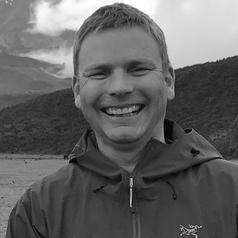
Andrew Mackintosh
Professor & Head, School of Earth Atmosphere and Environment; expert on glaciers and ice sheets, Monash University
Andrew is Head of the School of Earth, Atmosphere and Environment. He is known for his research on the large-scale interactions between glaciers, ice sheets and the climate system. He has worked on the Antarctic Ice Sheet and New Zealand glaciers, as well as the Greenland Ice Sheet and glaciers in Iceland and South America. His work has led to new understanding of glacier response to anthropogenic and natural climate variability, as well as providing new insights into the physical mechanisms that are causing rapid and potentially irreversible changes in ice sheets today.
Less ![]()
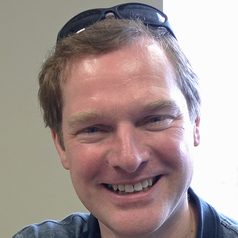
Andrew Maynard
Andrew Maynard is a Professor in the School for the Future of Innovation in Society at Arizona State University, and Director of the Risk Innovation Lab. His research and professional activities focus on risk innovation, and the responsible development and use of emerging technologies. He is especially interested in novel approaches to understanding and addressing risk; effective approaches to developing socially responsive, responsible and beneficial technologies; understanding and responding to the increasingly complex couplings between converging technologies and society; and effective science communication and engagement – particularly through social media. Through the ASU Risk Innovation Lab, he is exploring novel ways of understanding, thinking about and acting on risk from an entrepreneurial and innovation perspective. He is interested in understanding how risk as a “threat to value” shapes evolving risk landscapes around emerging technologies – especially where the value under threat is social, cultural and personal – and how creativity and serendipity can reveal new approaches to navigating these landscapes.
Andrew is widely published in the academic press and in public media. His peer review papers stretch from physics and toxicology to risk perception, governance, and policy. He also contributes to a regular column in the journal Nature Nanotechnology (where he writes on emerging ideas and research around nanotechnology and risk), and writes for the column “Edge of Innovation” on the news and commentary website The Conversation. In addition, he directs and produces the YouTube science education channel “Risk Bites”.
Andrew’s science training is in physics – specializing in nanoparticle analysis – and for many years he conducted and led research on aerosol exposure in occupational settings. In the early 2000’s he became increasingly involved in guiding US federal initiatives supporting nanotechnology research and development, and in addressing potential risks. In 2005 he became Chief Science Advisor for the Project on Emerging Nanotechnologies (and later the Synthetic Biology Project) at the Woodrow Wilson International Center for Scholars, and for five years helped inform national and global initiatives addressing the responsible development of nanotechnology. Over this period, he became increasingly interested in science communication and science policy, and began working closely with academics, policy makers, industry, non-government organizations, and journalists, on science-informed decision making. This interest continued between 2010 - 2015 as Director of the University of Michigan Risk Science Center, and Chair of the Environmental Health Sciences Department. In 2015 he joined the faculty of the School for the Future of Innovation in Society at Arizona State University to continue his work and collaborations on socially responsible, responsible and beneficial research and development.
In the course of his work, Andrew has testified before congressional committees, has served on National Academy panels, and has worked closely with organizations such as the World Economic Forum and the International Life Sciences Institute (ILSI) that promote public-private partnerships. He is currently co-chair of the World Economic Forum Global Agenda Council on Nanotechnology, and on the Board of Trustees of ILSI North America. He is also a member of the National Academies of Science Committee on the Science of Science Communication, and advises the science education/engagement program “I’m a Scientist”. While at the University of Michigan he was involved with the innovative science communication training program RELATE, and continues to serve as an advisor to the initiative. In 2015 he was awarded the Society of Toxicology Public Communication Award.
Less ![]()
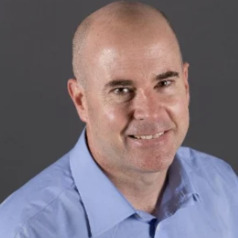
Andrew McKune
Professor, Exercise Science, University of Canberra
Andrew McKune is Professor of Exercise Science at the University of Canberra. Prior to taking up this role he held positions in Sport and Exercise Science at Tshwane University of Technology and the University of KwaZulu-Natal. He holds qualifications in human movement science, medical science (physiology), strength and conditioning (CSCS) and a doctoral degree specialising in exercise immunology.
Research Interests
Metabolic basis of mental illness.
Science of therapeutic carbohydrate restriction in human health
Immune/Inflammatory responses to nutrition and movement
Monitoring disease, health and adaptations to nutrition and movement interventions using non-invasive methods e.g. heart rate variability, salivary biomarkers.
Less ![]()

Andrew McNeill
Assistant Professor in Psychology , Northumbria University, Newcastle
Dr McNeill is a Senior Lecturer in Psychology and has been working at Northumbria University since 2013. His work explores social psychological factors in diverse contexts including intergroup conflict, design of social media, and public health. He is a strong advocate of mixed-methods approaches to psychology.
He did his PhD in the discursive psychology of post-conflict victimhood at Queen's University Belfast (2010-2013).
Less ![]()
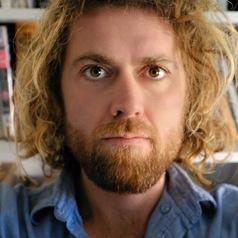
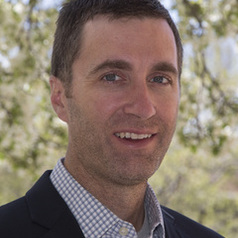
Andrew Monaghan
Scientist Research Applications Laboratory in Climate Science & Applications Program, University Corporation for Atmospheric Research
Andrew Monaghan employs computer models to study weather and climate at regional scales, with an emphasis on climate change, and the impacts of climate on human health. He is currently involved in a project to study the influence of climate on human plague transmission Uganda, where factors such as temperature and precipitation play an important role in determining risk. He is also interested in Antarctic climate variability. Monaghan works in NCAR’s Research Applications Laboratory.
Less ![]()
- Market Data




















